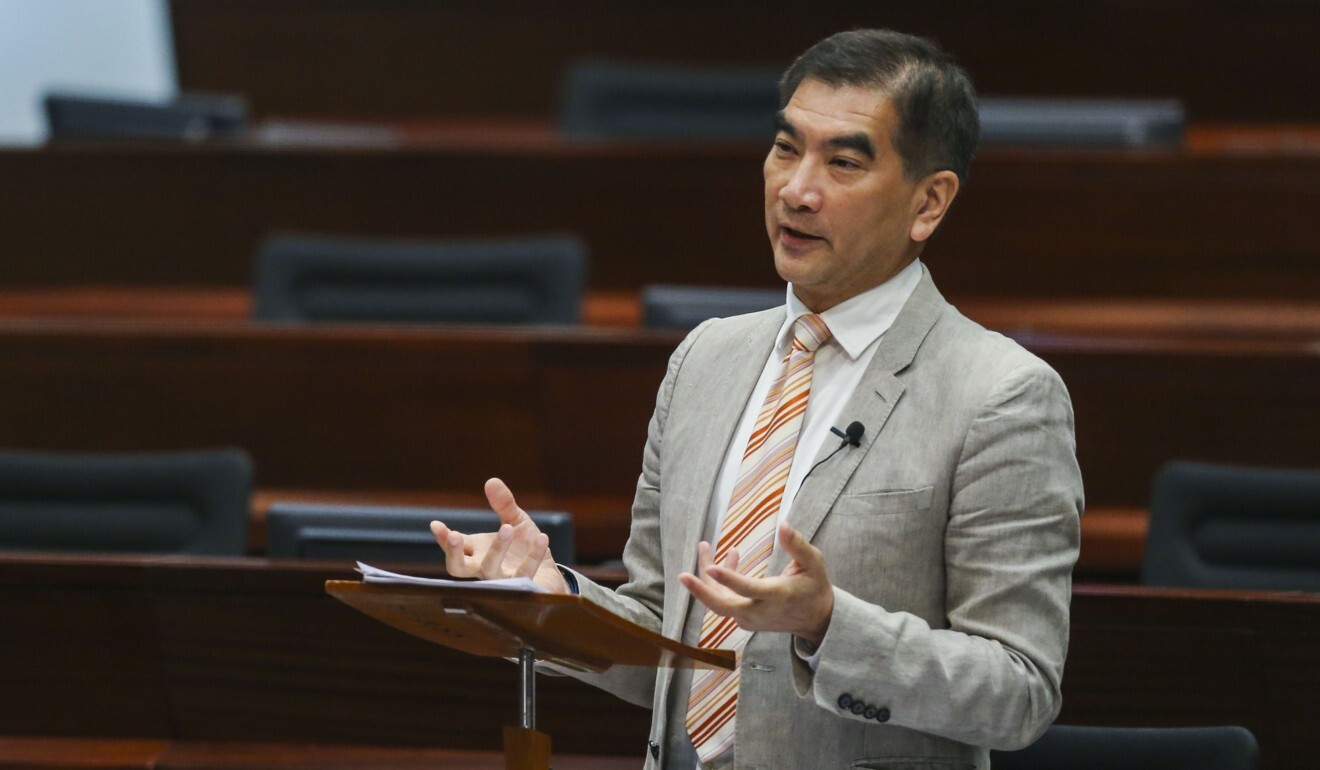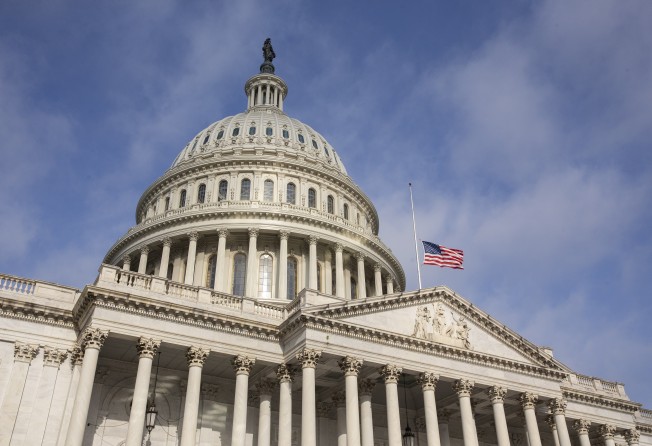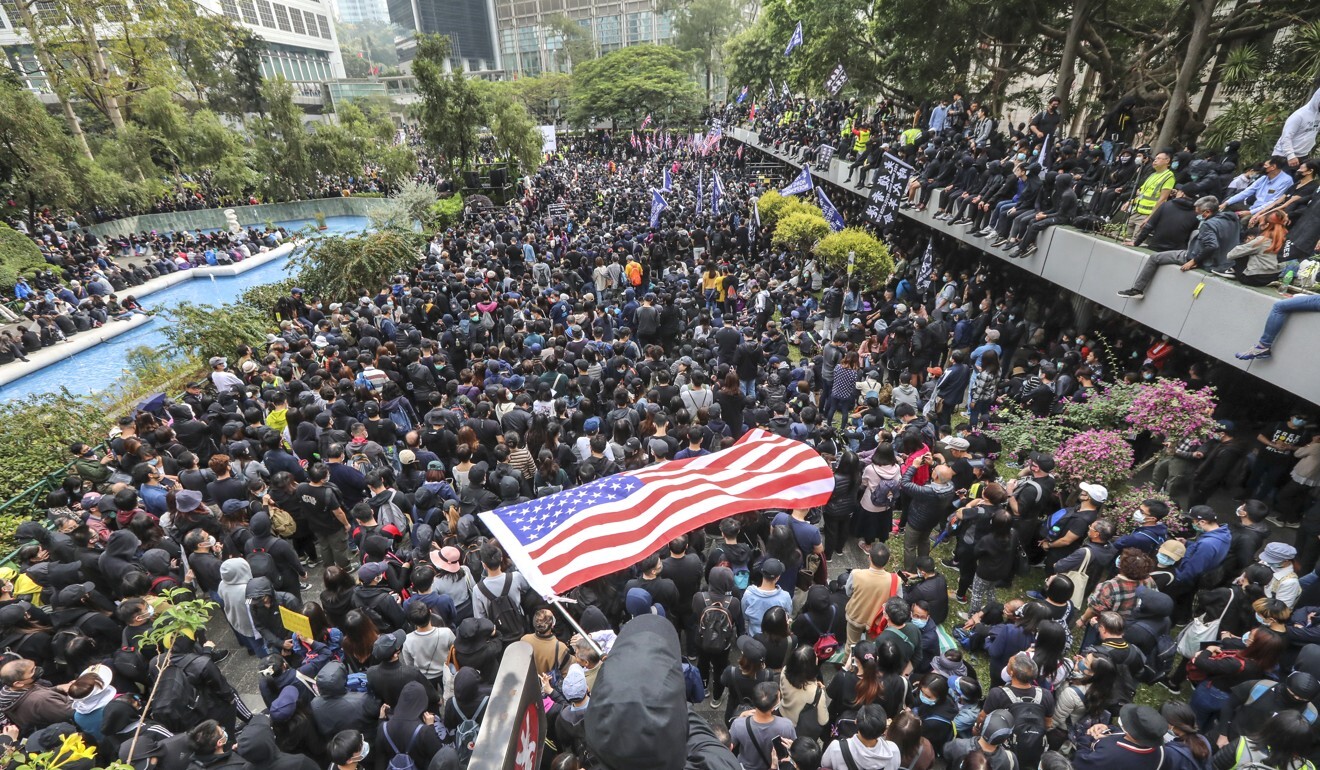
Hong Kong slams US’ Autonomy Act, urges Washington to refrain from measures that could affect financial institution operations
- Any sanctions imposed under the act ‘will not create an obligation for financial institutions under Hong Kong law’, spokesman says
- Local observers, meanwhile, say targeted sanctions likely to affect those with property or large amounts of assets tied up in the US

The Hong Kong government has slammed new US legislation that is paving the way for targeted sanctions against Beijing and Hong Kong officials, though local observers insist they expect relatively little impact on individuals and businesses in the city.
In a strongly worded statement released on Friday night, a government spokesman said the Hong Kong Autonomy Act, passed unanimously by the United States Senate as a response to Beijing’s planned national security law for the city, was “totally unacceptable” and that Congress’ criticism of local affairs was “seriously misleading and absolutely unfounded”.
“Any ‘sanctions’ imposed under the act will not create an obligation for financial institutions under Hong Kong law,” the spokesman said.
“We however urge the US side to act responsibly by refraining from taking measures that may potentially affect the normal operations of financial institutions and the vast number of customers they serve.”

The legislation passed on Thursday, which comes on the heels of the Hong Kong Human Rights and Democracy Act, seeks to establish mandatory sanctions for individuals or companies that have “materially contributed” to China’s failure to comply with the 1985 Sino-British Joint Declaration or the Basic Law, the city’s mini-constitution.
It would also impose sanctions on foreign financial institutions that have “knowingly conducted significant transactions” with those individuals and entities.
The US House of Representatives must now pass its own version of the bill before it can become law.
In the joint declaration that paved the way for Hong Kong’s return to Chinese rule, Beijing promised the city a high degree of autonomy. A statement posted to the website of US Senator Chris Van Hollen, who co-authored the bill with Senator Pat Toomey, specifically cited judicial independence as well as freedoms of the press, speech and assembly as rights guaranteed under the Basic Law.
But Wilson Chan, a former banker now with City University’s business school, believes the bill will have relatively little impact.
The most it can do is freeze the assets of the sanctioned person or entity, but if the affected party does not invest in the US stock market, or own property in the US, it’s not a big deal
“The most it can do is freeze the assets of the sanctioned person or entity, but if the affected party does not invest in the US stock market, or own property in the US, it’s not a big deal,” he said.
Any ban that prevented Hong Kong banks or Chinese lenders from accessing the US dollar-clearing network would amount to mutual destruction, according to Chan, given Hong Kong’s status as the world’s third-largest trading centre for US dollars.
“We do not believe the US will introduce such a measure,” he said.
Lawmaker Felix Chung Kwok-pan of the pro-business Liberal Party, meanwhile, told the Post the new act’s focused approach would allow the US to avoid broader moves that might cause collateral damage to American businesses.

Chung said moves such as scrapping preferential trade treatment for the city altogether would affect all businesses in Hong Kong, including American ones.
But the new act allows for greater specificity, such as prohibiting banks from working with certain individuals and companies.
“This way [the US] won’t be wiping out everyone,” Chung said.
Pro-government lawmaker Holden Chow Ho-ding, of the Democratic Alliance for the Betterment and Progress of Hong Kong, slammed the US for meddling in the city’s affairs.
“In the end, [the US] will harm its own economic benefits. It is an act of self-harm,” he said.
Opposition legislator Kenneth Leung Kai-cheong, who represents the accountancy sector, said Toomey’s bill would only be bad for those with large assets and investments in the US.
The provision banning US lenders from issuing loans or investing in foreign institutions that deal with sanctioned individuals could potentially have more impact, Leung said.
“Since this will have big implications for the investment market worldwide, it is doubtful whether the US government will go to that extreme,” he said.
Democratic Party lawmaker James To Kun-sun said the new act might make Beijing “think twice” before engaging in acts that could be interpreted as violating the Joint Declaration.
Additional reporting by Owen Churchill